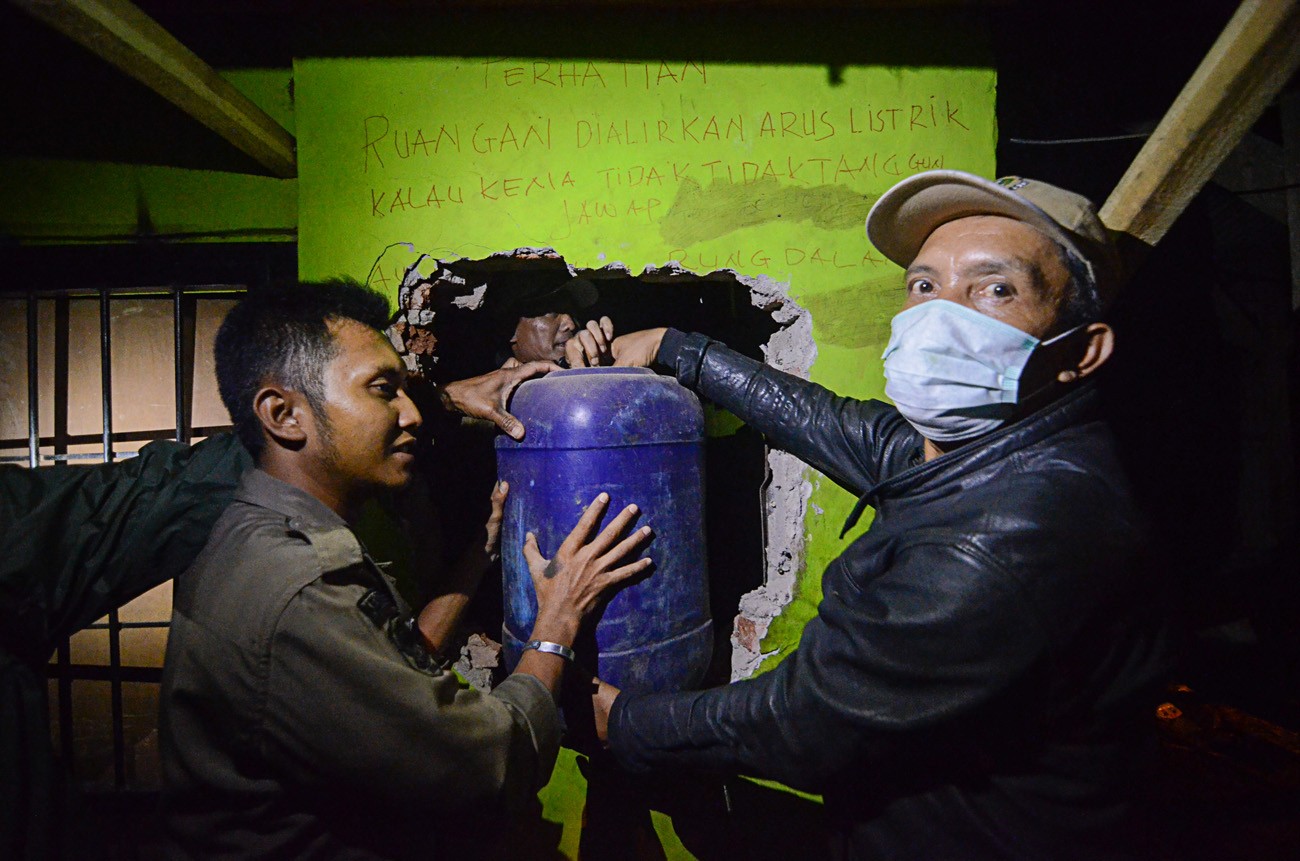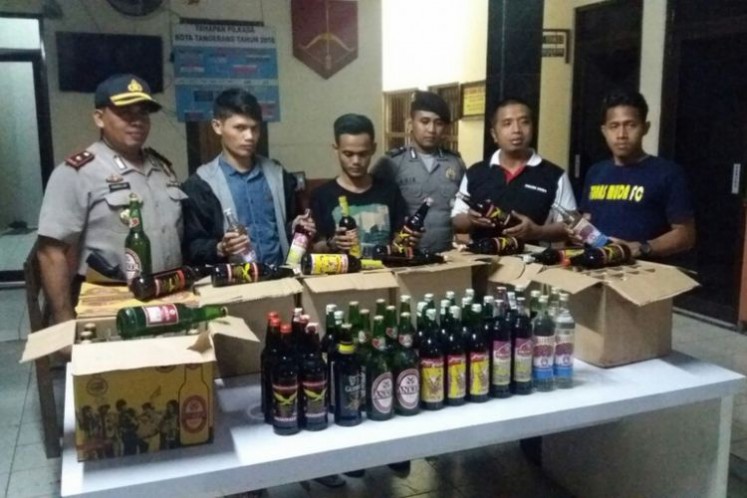Popular Reads
Top Results
Can't find what you're looking for?
View all search resultsPopular Reads
Top Results
Can't find what you're looking for?
View all search resultsIndonesia’s deadly liquor crisis escalates
Change text size
Gift Premium Articles
to Anyone
A
spike in the number of fatal bootleg liquor cases in recent weeks has alarmed the authorities in the country with the world’s largest Muslim population.
The latest incidents taking place in Greater Jakarta, West Java and Papua have reportedly claimed the lives of more than 70 people.
The West Java Police announced on Tuesday that the consumption of unlicensed alcoholic drinks, locally known as oplosan, has killed 45 people in the province in the past few days. Most of the casualties were reported in Cicalengka, with 35 fatalities, followed by Pelabuhan Ratu with six and Bandung with four.
“We are trying to find out who made the [bootleg liquor],” West Java Police chief Insp. Gen. Agung Budi Maryoto said.
A public hospital in Cicalengka said 20 people had died in the hospital alone after consuming bootleg liquor. The cause of their death was intoxication leading to internal organ failure, the hospital’s director, Yani Sumpena, said on Monday. The hospital is currently treating 15 people.
According to witnesses, the victims bought a yellow-colored drink sold in used mineral bottles. It has been reported that the drink contains pure alcohol, cough medicine and mosquito repellent.
More than 30 people died of bootleg alcohol poisoning within four days across Greater Jakarta last week, according to the Jakarta Police.
Eight people died in Depok and seven in Bekasi. Both regencies, while located in West Java, are under the jurisdiction of the Jakarta Police. Eight more casualties occurred in Jagakarsa, South Jakarta, and another 10 were recorded in Duren Sawit, East Jakarta.
Tangerang City Police in Banten show confiscated alcoholic drinks after raiding jamu (herbal drink) stalls suspected of selling bootleg liquor on April 4. (kompas.com/ Sherly Puspita)Jakarta Police chief Insp. Gen. Idham Azis said he would form a special team to investigate the circulation of bootleg liquor in the city.
“Our main target is not the sellers, but the distributors,” said East Jakarta Police chief Sr. Com. Yoyon Tony Surya Putra.
In Papua, six people were killed after consuming homebrew last week.
Restrictions and bans on the sale of beverages containing between 1 and 5 percent alcohol have indirectly increased the production and consumption of bootleg liquor, according to the Center for Indonesian Policy Studies (CIPS).
“The rise in the number of people who have died after drinking bootleg liquor is related to the prohibition of alcoholic beverage distribution and sales in areas across Indonesia as well as liquor sale restrictions stipulated in a Trade Ministry regulation,” CIPS researcher Sugianto Tandra said on Monday.
He was referring to a 2015 Trade Ministry regulation that banned the sale of alcoholic beverages at minimarkets and kiosks. Regulations imposing a high excise on liquor and sales limits have made it more difficult for people to purchase legitimate products.
Sugianto said the government would not succeed in imposing a total ban on liquor sales, because there was demand in the market. “Therefore, we are asking about the effectiveness of such a regulation. I think the aspect of public health should be included in the study for such a regulation.”
While the House of Representatives is still deliberating a bill on alcohol, some regions, including in West Java, one of the most conservative provinces in the country, have enacted regional bylaws limiting the sale of booze.
Such regulations are usually driven by religious zeal, as Islam prohibits alcoholic drinks. (ahw)











